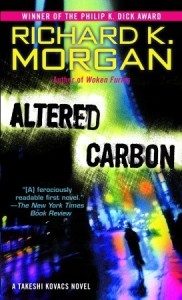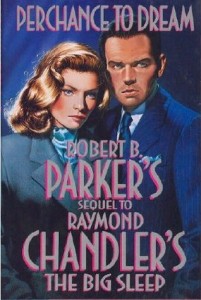 Title: Shoot the Piano Player (Goodreads)
Title: Shoot the Piano Player (Goodreads)
Author: David Goodis
Published: Prion, 1956
Pages: 196
Genres: Pulp
My Copy: Library Book
Buy: Amazon, Book Depository (or visit your local Indie bookstore)
Haunted by his past, Eddie plays to forget. Hiding from life, he plays nightly at a small joint on Skid Row; a place for hookers, lowlifes and crooks. A washed-up classical pianist, he finds himself bottoming out — he’s only care in the world is stroking the keys in this dive bar. When his brothers get in trouble with some gangsters, he finds himself being dragged into the chaos of his no-good family.
David Goodis really knows how to create a bleak world, which I did find myself being sucked into from the very start. Yet I tend to think that maybe Goodis missed the mark a little with this novel; there was something missing and the end result was not as compelling as others in this genre. I think the narrative was a bit flat; do not get me wrong, I love the existentialism, alienation and angst that were coming from Eddie but I think it failed to be as melodramatic or psychological as I would like from a noir novel like this.
Eddie was suppose to be an empty shell, not even closely resembling his former self and I think here is where I had the problem. There was no real character development for Eddie as there was nothing really there. He wasn’t hard-boiled, he was not witty or intelligent in any way; he just seemed to not care at all. Sure he tried to survive but as a character I thought of him as flat and boring. Lena, on the other hand, seemed like there was so much hidden from the reader but she never really got enough time in the book to explore that.
Another issue I found was the books was jammed back with dialogue and I feel like David Goodis was better at building atmosphere. I am not saying this is a bad book or that I did not enjoy it; I had a lot of fun reading this book. I just wanted to look at what let me down with the book as well as what worked. Shoot the Piano Player moves at a frenetic pace and if it wasn’t for the over use of dialogue to slow it down, this could of been a real page turner. This novel also feels really different to other noir novels; the style feels the same but there is something about this novel that makes it unique, possibly the execution of the plot but I cannot put my finger on it.
I have mixed feelings about this novel, at times it is amazing then you turn the page and it almost flat lines. Almost like it had it’s own emotions and suffers from severe mood swings. This balance never felt right; I get the impression this would work a whole lot better as a movie. In fact I think the movie French noir classic directed by François Truffaut and starring Charles Aznavour in 1960 was what held this book firmly in place with the other great noir novels. I wonder if the movie was not a success would this book fade into obscurity like the rest of David Goodis’ novels.
I did not intend to be so hard on this novel, I wanted to enjoy it and to some extent I did. Just in the end the cons far outweighed the pros. I have yet to see “Tirez sur le pianiste” but if I get my hand on it I think I would be correct in assuming that it is better than the novel. Add more angst, existentialism, melodrama or psychological elements and fix my issues; that would be the perfect pulp novel. Although then you will be more likely be reading a Raymond Chandler, James M Cain or Jim Thompson novel.

 Title: What it Was (
Title: What it Was ( Title: In A Lonely Place (
Title: In A Lonely Place ( Title: Altered Carbon (
Title: Altered Carbon ( Title: March Violets (
Title: March Violets ( Title: In the Midst of Death (
Title: In the Midst of Death ( Title: The Sins of the Fathers (
Title: The Sins of the Fathers ( Title: The Big Nowhere (
Title: The Big Nowhere ( Title: Perchance to Dream (
Title: Perchance to Dream ( Title: No Orchids for Miss Blandish (
Title: No Orchids for Miss Blandish (